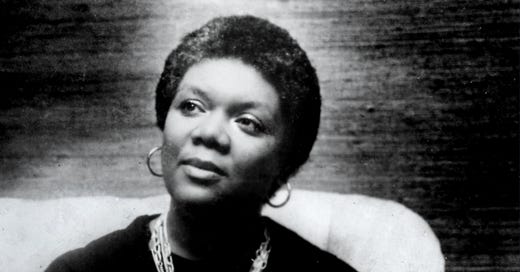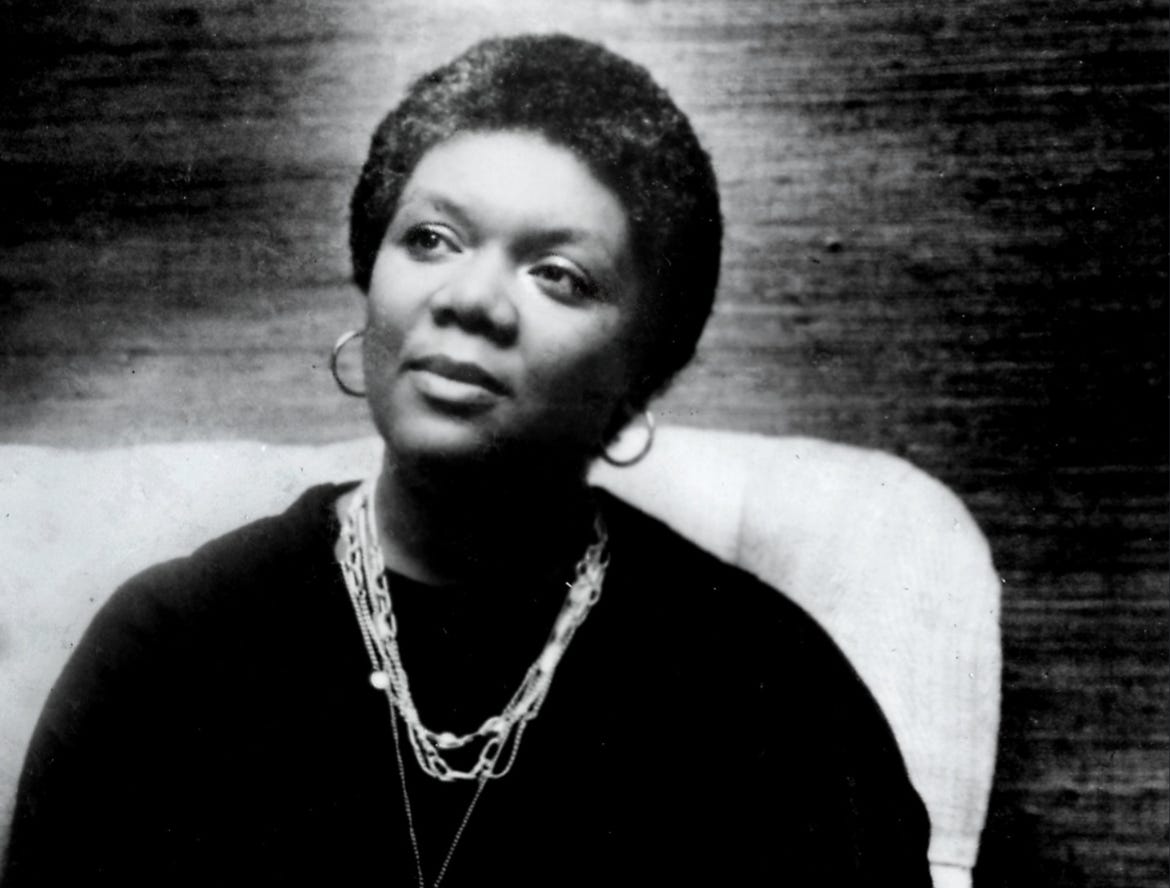Poesy & Prosopography’s poet of interest this week is the ever-relevant Lucille Clifton.
Clifton’s motivation for writing can be summed up in one word: dissatisfaction. She grew up hearing stories from her father of her namesake Lucille, the first black woman legally hanged in Virginia. She was told of her grandparents being bought and sold, and of her family’s lost African provenance. Clifton said that even as a child, she was dissatisfied by the lack of credible record behind these stories. She wanted written histories, not just oral traditions. During a reading of her work, Clifton said, “Black history is usually alleged. Everybody else’s history happened, ours is just alleged.”
Born in 1936, in New York, Clifton grew up steeped in stories of her family’s time spent in slavery. Her book, Generations is structured as a familial memoir, yet it leaves out the author’s life story. Clifton wrote this collection to memorialize her family’s life, not her own. In later works Clifton revealed more episodes of her personal life in her shorter poems, which she published in 13 collections over the course of her life.
Clifton honed her writing skills at Howard University and then at State University of New York at Fredonia where she met her husband. She then worked as a claims clerk and made her way into the literary sphere as a literary assistant for the Office of Education. Clifton began to write small scenes from her life and familial stories in free verse, soon finding her signature style. Her poems are typically quite short with brief lines and little to no punctuation or capitalization. Her ability to speak so clearly through vignettes and plain language made her work sharp and relevant.
Clifton published her first collection at 36, drawing inspiration from her children. In the title poem of this collection, Good Times, she recounts her own childhood to her children, reminding them that they will fondly look back on these times. Laud for her work led Clifton to spend over ten years as Maryland’s Poet Laureate, and her writing earned the National Book award in 2000. Her list of achievements also includes the Ruth Lilly award, the Robert Frost medal, an Emmy award, the Coretta Scott King award, and many more.
The Stanza of the Week is Clifton’s 5/23/67 R.I.P.:
The house that is on fire
pieces all across the sky
make the moon look like
a yellow man in a veil
watching the troubled people
running and crying
Oh who gone remember now like
it was,
Langston gone.
This poem speaks of a nation on fire and the death of an activist and a friend of Clifton’s, Langston Hughes. 5/23/67 R.I.P. is an excellent example of Clifton’s style because this poem does not respect nearly any typical rules of poetry. Only three words are capitalized, and there are only two punctuations. Despite the poem’s lack of classical structure, it still communicates alarm, myth, and political concern. The author blends a childish caricature of the moon with a very grave situation and death. This type of poem is Clifton’s record of not only historical events but also her perception and experience of these times. Clifton’s eldest child was seven years old when Clifton wrote this, explaining the fragmentation of fairytale and deep worry in this poem.
Clifton wrote a great deal of political poetry, preserving history in the same way her family did through storytelling. Clifton once said, “History is chasing you, America, like a mean dog, and the only way to get it off your back is to turn around and stare it in the face.” Clifton stares history in the face with her writing, and she forces her reader to do the same.





